 Reporting from this years EARMA conference in Portugal, I have just heard a presentation from the DG for Research & Innovation who has revealed that this week the official new name for FP8 was launched -‘ Horizon 2020 – towards a new framework programme for research and innovation’. A bit of a mouthful so at BU we will refer to it as ‘Horizon 2020’!
Reporting from this years EARMA conference in Portugal, I have just heard a presentation from the DG for Research & Innovation who has revealed that this week the official new name for FP8 was launched -‘ Horizon 2020 – towards a new framework programme for research and innovation’. A bit of a mouthful so at BU we will refer to it as ‘Horizon 2020’!
Tagged / funding
Natural-hazards research should focus on developing countries, says new report
 International research funding for the societal impact of natural hazards should be more focused on developing countries and under-funded themes such as droughts, landslides and flash floods, finds a review funded by the UK Collaborative on Development Sciences, the DfID and RCUK. Societal Impacts of Natural Hazards: A review of international research funding argues that if research attention is to “match relative risk” it should be directed towards developing countries most at risk from natural hazards, such as those in sub-Saharan Africa. Support for research in developing countries, it says, could come through partnerships between local research institutions and those from elsewhere in the world. The report also recommends the development of “urgency funding” so that research can be carried out quickly after a disaster has struck—in “real time”.
International research funding for the societal impact of natural hazards should be more focused on developing countries and under-funded themes such as droughts, landslides and flash floods, finds a review funded by the UK Collaborative on Development Sciences, the DfID and RCUK. Societal Impacts of Natural Hazards: A review of international research funding argues that if research attention is to “match relative risk” it should be directed towards developing countries most at risk from natural hazards, such as those in sub-Saharan Africa. Support for research in developing countries, it says, could come through partnerships between local research institutions and those from elsewhere in the world. The report also recommends the development of “urgency funding” so that research can be carried out quickly after a disaster has struck—in “real time”.
Reminder – 5 day internal deadline for Research Councils
Just a reminder that from 1st February 2011 ULT has agreed an internal deadline of five working days prior to the published submission deadline for all Research Council bids made via the Je-S system.
If proposals are submitted with technical errors they are either returned by the Research Council for amendment or, in the worst case scenario, the application will fail the initial Research Council sift and be rejected. These problems can easily be spotted by CRE Operations prior to final submission if they have enough time to review the application. The new internal deadline is in line with Research Council recommendations and will allow checks to take place so that the academic content can shine and give the project the best chance of being funded!
EU funding for studies on racist and xenophobic behaviour
 Funding is available for a study on the legal and institutional framework adopted in the EU member states on racist or xenophobic hate speech and on hate crime based on a racist or xenophobic motivation, and on the application of such a framework. Funding is worth up to €250,000 over nine months; see the website for more information.
Funding is available for a study on the legal and institutional framework adopted in the EU member states on racist or xenophobic hate speech and on hate crime based on a racist or xenophobic motivation, and on the application of such a framework. Funding is worth up to €250,000 over nine months; see the website for more information.
Funding for CO2 storage, security, rural policy, climate adaptation and climate policy
 Climate Action funding is available for a range of tenders, relating to the geological storage of CO2, security measures used by the financial sector, the optimal development of rural policy, EU strategies for climate change adaptation and policy development and assessment in relation to climate change. Funding is worth up to €230,000 over 36 months for CO2 storage proposals, up to €250,000 over six months for financial sector studies, up to €400,000 over 12 months for rural projects, up to €700,000 over 15 months for climate change adaptation and up to €2.5 million over 12 months for climate policy actions.
Climate Action funding is available for a range of tenders, relating to the geological storage of CO2, security measures used by the financial sector, the optimal development of rural policy, EU strategies for climate change adaptation and policy development and assessment in relation to climate change. Funding is worth up to €230,000 over 36 months for CO2 storage proposals, up to €250,000 over six months for financial sector studies, up to €400,000 over 12 months for rural projects, up to €700,000 over 15 months for climate change adaptation and up to €2.5 million over 12 months for climate policy actions.
EU funding for water, energy and land use statistics
 Eurostat invites proposals for a range of tenders exploring statistics in relation to water use in developing countries, agro-agricultural land use, national statistical systems and energy. Funding is worth up to €100,000 over 12 months for water statistics projects, €10.7 million over 21 months for land use projects and €75,000 over 12 months for NSS research. For energy research up to €300,000 over 12 months is available, divided into three contracts, or up to €270,000 over 30 months, divided into three contracts, depending on the lot selected. View the full details for these calls by performing a Funding Search for 1162932, 1162933, 1162934 or 1162955 in the Full Text field.
Eurostat invites proposals for a range of tenders exploring statistics in relation to water use in developing countries, agro-agricultural land use, national statistical systems and energy. Funding is worth up to €100,000 over 12 months for water statistics projects, €10.7 million over 21 months for land use projects and €75,000 over 12 months for NSS research. For energy research up to €300,000 over 12 months is available, divided into three contracts, or up to €270,000 over 30 months, divided into three contracts, depending on the lot selected. View the full details for these calls by performing a Funding Search for 1162932, 1162933, 1162934 or 1162955 in the Full Text field.
Funding available for EU sustainable development indicators & audiovisual production and statistics
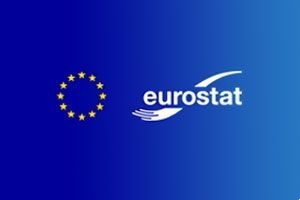 Eurostat has funding available for two topics:
Eurostat has funding available for two topics:
Tenders submitted under ‘Publications and an audiovisual production on European Union sustainable development indicators‘ should review the knowledge relating to this field in the EU by carrying out conceptual work and analyses and drawing up a draft manual as a citizens’ guide to assessing sustainable development. Funding is worth up to €200,000 over six months and the deadline is 28.07.11.
Tenders submitted under EU Statistics should focus on income and living conditions methodological studies and publications; statistics on high-tec industries, knowledge-based services and human resources in science and tehcnology; statistics on innovation; patent statistics, with a focus on patenting by SMEs; methodological development of statistics on crime and criminal justice. The overall budget for this call is €1.75 million over 36 months and the deadline is 28.07.11.
Writing a lay summary is easy, right?
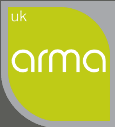
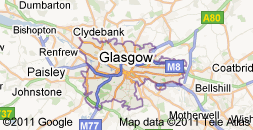 Not necessarily! The lay summary is an extremely important part of most research bids. Most researchers think they write it well, and yet many bids fail because it is not ‘lay enough’. The topic was debated at this year’s ARMA conference (Association of Research Managers and Administrators) in bonnie Glasgow. The highlights of the session are detailed below.
Not necessarily! The lay summary is an extremely important part of most research bids. Most researchers think they write it well, and yet many bids fail because it is not ‘lay enough’. The topic was debated at this year’s ARMA conference (Association of Research Managers and Administrators) in bonnie Glasgow. The highlights of the session are detailed below.
A lay summary is used to explain complex ideas and technical and scientific terms to people who do not have a prior knowledge about the subject. A lay audience is heterogeneous (it includes the general public, patients and users of the science, politicians and other decision-makers, and researchers in different disciplines such as potential research collaborators). A lay summary is a requirement at application stage by most funding bodies, including the UK research councils.
When applying to UK research councils you are normally allowed up to 4,000 characters for your lay summary. There is no need to use all of these characters; often being concise is good for a lay audience! There are also some funding bodies that enforce a much stricter word limit, such as the British Heart Foundation who only allow up to 100 words for a lay summary.
What is the definition and purpose of a lay summary?
This very much depends on which funding body you are applying to as they all have their own definitions. For example, the Je-S Help Guide states the summary should be “written so that it will be understood by a non-specialist audience” but each of the different research councils have their own definition, such as:
EPSRC – “Using simple terms you are asked to describe your proposed research in a way that can be publicised to a general audience. It is very important that you make every effort to ensure that your summary is understandable to someone who is not an expert in your field. This is the section of your application that, if successful, EPSRC will use for publicity purposes. You should also note that the Outline panels who will review your proposal will be drawn from across EPSRC’s remit and will not necessarily have expertise in your research area.”
ESRC – “Write in plain English. Your proposal is likely to be seen by a great many people, some of whom will not be versed in your particular specialisation. Detail and specification may necessitate the use of disciplinary or technical terminology and this will be clear to peer reviewers, but the ideas you wish to convey and your reasons for doing so should be apparent to a wide audience. By the same token, do take the trouble to check spelling, grammar and punctuation. These are all part of the quality of presentation and presentation matters!
What is the story you are telling?
What is the audience?
Why does it matter?
Why now?
Why are they the best person to carry out this research?”
One of the most concise and succinct definitions is provided by Buckland et al (2007): “a brief summary of a research project or a research proposal that has been written for members of the public rather than researchers or professionals. It should be written in plain English, avoid the use of jargon and explain any technical terms that have been included”. [1]
These different definitions are very confusing! But in essence a lay summary has three main requirements:
- To paint the bigger picture
- To answer who, what, where, when, why, how?
- Be written in plain English
 Painting the bigger picture: The lay summary is your first chance to impress the reviewer! Reviewers are very busy and in the majority of cases the lay summary is the first (and sometimes the only) part of a grant application that he/she will read. It is therefore vitally important that it is interesting, easy to read and conscise. It needs to give an overview of the whole project – the background, aims and expected impact.
Painting the bigger picture: The lay summary is your first chance to impress the reviewer! Reviewers are very busy and in the majority of cases the lay summary is the first (and sometimes the only) part of a grant application that he/she will read. It is therefore vitally important that it is interesting, easy to read and conscise. It needs to give an overview of the whole project – the background, aims and expected impact.
Answer who, what, where, when, why, how?: It may sound harsh but many reviewers will read research proposals and be left asking themselves ‘so what?’. Your lay summary needs to answer this by explaining why the project is exciting, relevant and timely, and worth funding now above all of the other submitted proposals. Lay summaries are normally used by funding bodies to promote the research project so think about who is likely to read your lay summary, should your proposal be funded, and ensure you answer these ‘who, what, where, when, why and how’ questions with these various readers in mind. For example, your lay summary may be used in the following ways:
- by politicians in raising and justifying research funds from government;
- to justify public spending on research;
- to attract new collaborators such as industrial partners and researchers from different disciplines
- by press officers to promote your research to the public
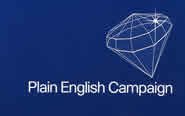 Be written in plain English: A strong lay summary will always explain any technical terms used, spell out abbreviations, and avoid using jargon. It will also be written in ‘plain English’ but what exactly does this mean?
Be written in plain English: A strong lay summary will always explain any technical terms used, spell out abbreviations, and avoid using jargon. It will also be written in ‘plain English’ but what exactly does this mean?
- Titles should be simple and clear. The European Commission’s FP7 guidance states that titles should be understandable to the non-specialist in the field. The best format for a title is to give a short statement followed by a colon and then a brief explanation.
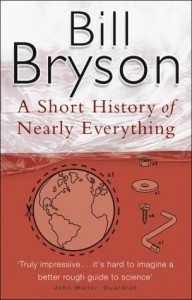 Simple analogies should be used to help the reader make sense of complex ideas. Arthritis Research UK suggest a good example of this is Bill Bryson’s book ‘A Short History of Nearly Everything’ [2] which uses analogies of everyday objects and activities to explain complex scientific concepts. Whilst simple analogies might mean that you lose detail and may not be perfect then strengthen your proposal if they make your ideas clearer to the reader.
Simple analogies should be used to help the reader make sense of complex ideas. Arthritis Research UK suggest a good example of this is Bill Bryson’s book ‘A Short History of Nearly Everything’ [2] which uses analogies of everyday objects and activities to explain complex scientific concepts. Whilst simple analogies might mean that you lose detail and may not be perfect then strengthen your proposal if they make your ideas clearer to the reader.- Clear layout – avoid using English phrases (such as ‘the lion’s share’) as these may not be understood by the reader. Avoid using double negatives as they cloud meaning. Order the paragraphs logically – start with the problem your research aims to solve so the reader can identify with this first. Break up blocks of text with bullet points, shorter paragraphs, etc. It is good practice to match the layout with the layout of your objectives. Do not use jargon (unless it is defined and explained in the summary) and ensure all abbreviations are spelt out.
Media / public engagement training courses: The UK research councils offer media/public communications training courses. These are highly recommended within the sector and offer good value for money. Most councils allow you to include the costs in your research proposal providing you justify it in your case for support, otherwise the training is free to funded students or grant holders. For example:
- EPSRC – http://www.epsrc.ac.uk/funding/grants/pe/Pages/commstraining.aspx
- BBSRC – http://www.bbsrc.ac.uk/funding/awardholders/media-training.aspx
- ESRC – http://www.esrc.ac.uk/funding-and-guidance/tools-and-resources/impact-toolkit/tools/media/media-training.aspx
- NERC – http://www.nerc.ac.uk/press/mediatraining.asp
BU’s internal peer review scheme (RPRS): Support for writing and strengthening research proposals (including writing a good lay summary) is available via the internal Research Proposal Review Service (RPRS). Visit the RPRS webpage for further information!
References:
[1] Buckland, S. et al (2007) Public Information Pack. How to get actively involved in NHS, public health and social care research. INVOLVE Public Information Pack 4 available at: http://www.invo.org.uk/pdfs/pip44jargonbuster.pdf
[2] Bryson, B (2004) A Short History of Nearly Everything, Black Swan: London
The advantages of winning EU funding: BU’s Sherry Jeary shares her experiences

“I spent the first three months of this year sitting in REC, a software engineering company in Wroclaw, Poland doing 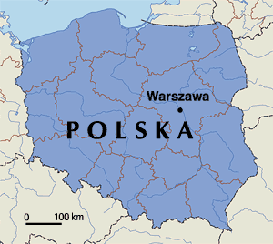 the job of a Software Engineer. So what is unusual about that? I am a Senior Lecturer in Software Engineering and have, for the first time in my career, had complete immersion in a company doing the subject I research, talk to students about, enthuse with colleagues about and generally bore my outside friends about. As part of the INFER project headed up by Bogdan Gabrys which is creating a complex, predictive, adaptive system, I have had an opportunity that rarely comes an academics way. I got to live in Wroclaw, had fun getting about in a beautiful part of Poland and really enjoyed being among the Polish people. ( I would also recommend the Bison grass Vodka J).
the job of a Software Engineer. So what is unusual about that? I am a Senior Lecturer in Software Engineering and have, for the first time in my career, had complete immersion in a company doing the subject I research, talk to students about, enthuse with colleagues about and generally bore my outside friends about. As part of the INFER project headed up by Bogdan Gabrys which is creating a complex, predictive, adaptive system, I have had an opportunity that rarely comes an academics way. I got to live in Wroclaw, had fun getting about in a beautiful part of Poland and really enjoyed being among the Polish people. ( I would also recommend the Bison grass Vodka J).
As a result I have already written a conference paper and had it accepted whilst a journal paper will follow. I will have two very useful case studies which I can discuss with colleagues and have learnt a great deal about the processes involved in the company (my particular research interest). I am advising the company on the ways that they can improve what they are doing – so it is a two way thing. Finally, as a result of the project my network  has expanded considerably with both academics and industrialists. I can see how I may need change my teaching strategy to respond to what is happening in the real world and I am well placed to consider applying for funding with my company colleagues in the future to continue the work I have started.
has expanded considerably with both academics and industrialists. I can see how I may need change my teaching strategy to respond to what is happening in the real world and I am well placed to consider applying for funding with my company colleagues in the future to continue the work I have started.
At a recent meeting discussing our strategy for BU’s engagement with Europe, I was surprised to hear that many academics were either not interested or were nervous of starting out in the EU. I agreed to write about my current journey. If you work at BU and want to find out more, let me know. I am happy to help.”
Conference / travel grants
Conference / travel grants are an excellent way of securing some funding to attend conferences to promote your research, raise your profile and join/establish networks.
If you are a new researcher then these are an excellent way to start/develop your research career. Winning a handful of conference/travel grants will put you in a much better position to start winning larger, more prestigious grants, such as those from the UK Research Councils. They will give you project management experience and give future funders the confidence that you are capable of conducting good research and delivering a project.
 Many funding bodies offer conference grants and you can do a search of Research Professional to identify current calls.
Many funding bodies offer conference grants and you can do a search of Research Professional to identify current calls.
To discuss possible opportunities or for support in submitting a proposal contact the CRE Operations team who will happily advise and guide you through the process.
Think broader – bid internationally!
There are literally thousands of funding opportunities open to researchers in the UK, and many of these are offered by international funding bodies. You can see a basic list of non-UK funding bodies offering large pots of funding here: Large non-UK funding pots
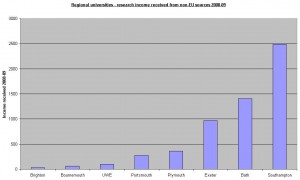
The chart on the left shows how much income a selection of the regional universities received for research contracts from non-EU sources in 2008-09 (click on the chart to see it full screen). BU has not previously actively promoted these funding pots but they are there for the taking and as our national research funding pots are reducing coupled with ever-increasing competition for funds, we should be actively targetting alternative sources.
In addition to the large funding pots available, there are thousands of funding bodies offering relatively small amounts of funding. If you are a new researcher then these are an excellent way to start/develop your research career. Winning a handful of these smaller grants will put you in a much better position to start winning larger, more prestigious grants, such as those from the UK Research Councils. They will give you project management experience and give future funders the confidence that you are capable of conducting good research and delivering a project.
 As the world’s largest funding database, Research Professional is an excellent place to start identifying non-EU funding opportunities. We have put together a guide on how to set up a personal search in Research Professional so you can start to identify and apply to these funding pots. You can download the guide here: RP international funding guide.
As the world’s largest funding database, Research Professional is an excellent place to start identifying non-EU funding opportunities. We have put together a guide on how to set up a personal search in Research Professional so you can start to identify and apply to these funding pots. You can download the guide here: RP international funding guide.
To discuss possible international funding opportunities or for support in submitting a proposal contact the CRE Operations team who will happily advise and guide you through the process.
Study on: ICT Concepts for Optimisation of Mobility in Smart Cities
 The European Commission, Information Society and Media DG, has published a call for tenders regarding ICT concepts for optimisation of mobility in smart cities.
The European Commission, Information Society and Media DG, has published a call for tenders regarding ICT concepts for optimisation of mobility in smart cities.
The study will assess the impact of urban policy objectives on the need for research and innovation in Information and Communication Technologies (ICT) in the area of transport. ICT-based mobility services for goods in urban and inter-urban environments should also be taken into account.
Duration must not exceed 6 months
The total price quoted cannot exceed €200,000
Deadlines: Request for Information 21 July 2011 and Submission 29 July 2011
Not yet signed up to UKRO? It takes only a few minutes – read more on our blogpost
Land as an environmental resource
 The tenderer will assess current land use, its functions and its potential for improvement, as well as the risks of excess demand for biotic production in relation to environmental policy and recommendations for ecosystem damage reduction and more efficient use of land resources. Funding is worth approximately €220,000 over 12 months. Further information can be found here.
The tenderer will assess current land use, its functions and its potential for improvement, as well as the risks of excess demand for biotic production in relation to environmental policy and recommendations for ecosystem damage reduction and more efficient use of land resources. Funding is worth approximately €220,000 over 12 months. Further information can be found here.
Closing date: 4 July 2011
Study on “Pressures and Measures in the major river basin management plans in the EU”
 The European Commission has published a call for tenders for a comparative study of pressures and measures in the major river basin management plans in the EU.
The European Commission has published a call for tenders for a comparative study of pressures and measures in the major river basin management plans in the EU.
The study will gather, in a structured way, information on pressures and measures in the river basin management plans, and on the following topics related to river basin management: governance, agriculture, hydromorphology, intercalibration, specific pollutants, typologies, drinking water protected areas, costs and benefits, enforcement and control systems, and innovation. It will also compare the information in order to provide a Europe-wide overview on the aforementioned topics.
The publication will contribute to the development of the 2012 Blueprint to Safeguard Europe’s Waters.
Funding is worth between €1.45 million and €1.5 million over 12 months
Deadline: 4 July 2011
Study on “Towards an overall measurement methodology of the carbon and energy footprints of the ICT sector”
 The objective of this study is to identify and carry out critical analyses of the existing methodologies and initiatives aiming at measuring the GHG emissions and energy consumption applicable to the ICT sector (ICT products, services and companies).
The objective of this study is to identify and carry out critical analyses of the existing methodologies and initiatives aiming at measuring the GHG emissions and energy consumption applicable to the ICT sector (ICT products, services and companies).
The expected result is to get a clear picture and critical comparison of the methodologies and initiatives that exist or are in preparation, in the EU and globally.
Duration must not exceed 7 months.
The total price quoted cannot exceed €180.000.
Deadlines: Request for information 23 June 2011; Submission 30 June 2011
Further docs: Invitation to Tender; Tender Specifications; Annex to Tender Specifications; Model Service Contract
Youth in Action Programme – Call for Proposals
 Youth in Action is the Programme the European Union has set up for young people. It aims to inspire a sense of active European citizenship, solidarity and tolerance among young Europeans and to involve them in shaping the Union’s future.
Youth in Action is the Programme the European Union has set up for young people. It aims to inspire a sense of active European citizenship, solidarity and tolerance among young Europeans and to involve them in shaping the Union’s future.
It promotes mobility within and beyond the EU’s borders, non-formal learning and intercultural dialogue, and encourages the inclusion of all young people, regardless of their educational, social and cultural background.
The total level of funding available for 2011 is over €122 million and the prioritise are European Year of Volunteering; Youth Unemployment; Inclusive Growth; Global environmental challenges and climate change; Creativity and entrepreneurship; and EU-China Year of Youth.
The call is open to non-profit or non-governmental organisations, local, regional public bodies, informal groups of young people, bodies active at European level in the youth field, international non-profit organisations, and profit-making organisations organising an event in the area of youth, sport or culture.
The next closing date for applications under its Youth in Action Programme is the 1st September 2011.
Funding available to enhance youth work in Europe
 Youth in Action is the EU Programme for young people aged 15-28 (in some cases 13-30). It aims to inspire a sense of active citizenship, solidarity and tolerance among young Europeans and to involve them in shaping the Union’s future. The European Commission has announced a new call for proposals to support the professional development of youth workers. Grants of up to €25,000 are available to those active in the field of youth to develop transnational partnerships and preference will be given to projects that address the issue of youth unemployment.
Youth in Action is the EU Programme for young people aged 15-28 (in some cases 13-30). It aims to inspire a sense of active citizenship, solidarity and tolerance among young Europeans and to involve them in shaping the Union’s future. The European Commission has announced a new call for proposals to support the professional development of youth workers. Grants of up to €25,000 are available to those active in the field of youth to develop transnational partnerships and preference will be given to projects that address the issue of youth unemployment.
Projects should involve a partnership between two partners from two different programme countries of which at least one is from an EU Member State, acting respectively as sending and host organisation of the youth worker involved in the project. Projects will have a maximum duration of 12 months and must start between 1 January 2012 and 1 June 2012.
The closing date for applications is the 1st September 2011
Fuel Cell and Hydrogen Call for Proposals launched
 The Call has a budget of 109M€ and a deadline of August 18th. A webinar organised by the Fuel Cell and Hydrogen Group of the Energy Generation & Supply KTN was held last week and the slides and a recording of the presentation are available on the pages of the Focus Working Group on the FCH JU 2011 Call. You will need to be a member of the Group to access these materials and the added benefits of joining are that you will also be able to work with other members of the fuel cell and hydrogen community to explore how to prepare a successful bid into the FCH JU Call, exchange experiences, gain insights into the 2011 topics, search for collaboration partners and find a range of information on how to work and apply for European funding.
The Call has a budget of 109M€ and a deadline of August 18th. A webinar organised by the Fuel Cell and Hydrogen Group of the Energy Generation & Supply KTN was held last week and the slides and a recording of the presentation are available on the pages of the Focus Working Group on the FCH JU 2011 Call. You will need to be a member of the Group to access these materials and the added benefits of joining are that you will also be able to work with other members of the fuel cell and hydrogen community to explore how to prepare a successful bid into the FCH JU Call, exchange experiences, gain insights into the 2011 topics, search for collaboration partners and find a range of information on how to work and apply for European funding.











 SPROUT: From Sustainable Research to Sustainable Research Lives
SPROUT: From Sustainable Research to Sustainable Research Lives BRIAN upgrade and new look
BRIAN upgrade and new look Seeing the fruits of your labour in Bangladesh
Seeing the fruits of your labour in Bangladesh Exploring Embodied Research: Body Map Storytelling Workshop & Research Seminar
Exploring Embodied Research: Body Map Storytelling Workshop & Research Seminar Marking a Milestone: The Swash Channel Wreck Book Launch
Marking a Milestone: The Swash Channel Wreck Book Launch ECR Funding Open Call: Research Culture & Community Grant – Application Deadline Friday 12 December
ECR Funding Open Call: Research Culture & Community Grant – Application Deadline Friday 12 December MSCA Postdoctoral Fellowships 2025 Call
MSCA Postdoctoral Fellowships 2025 Call ERC Advanced Grant 2025 Webinar
ERC Advanced Grant 2025 Webinar Update on UKRO services
Update on UKRO services European research project exploring use of ‘virtual twins’ to better manage metabolic associated fatty liver disease
European research project exploring use of ‘virtual twins’ to better manage metabolic associated fatty liver disease